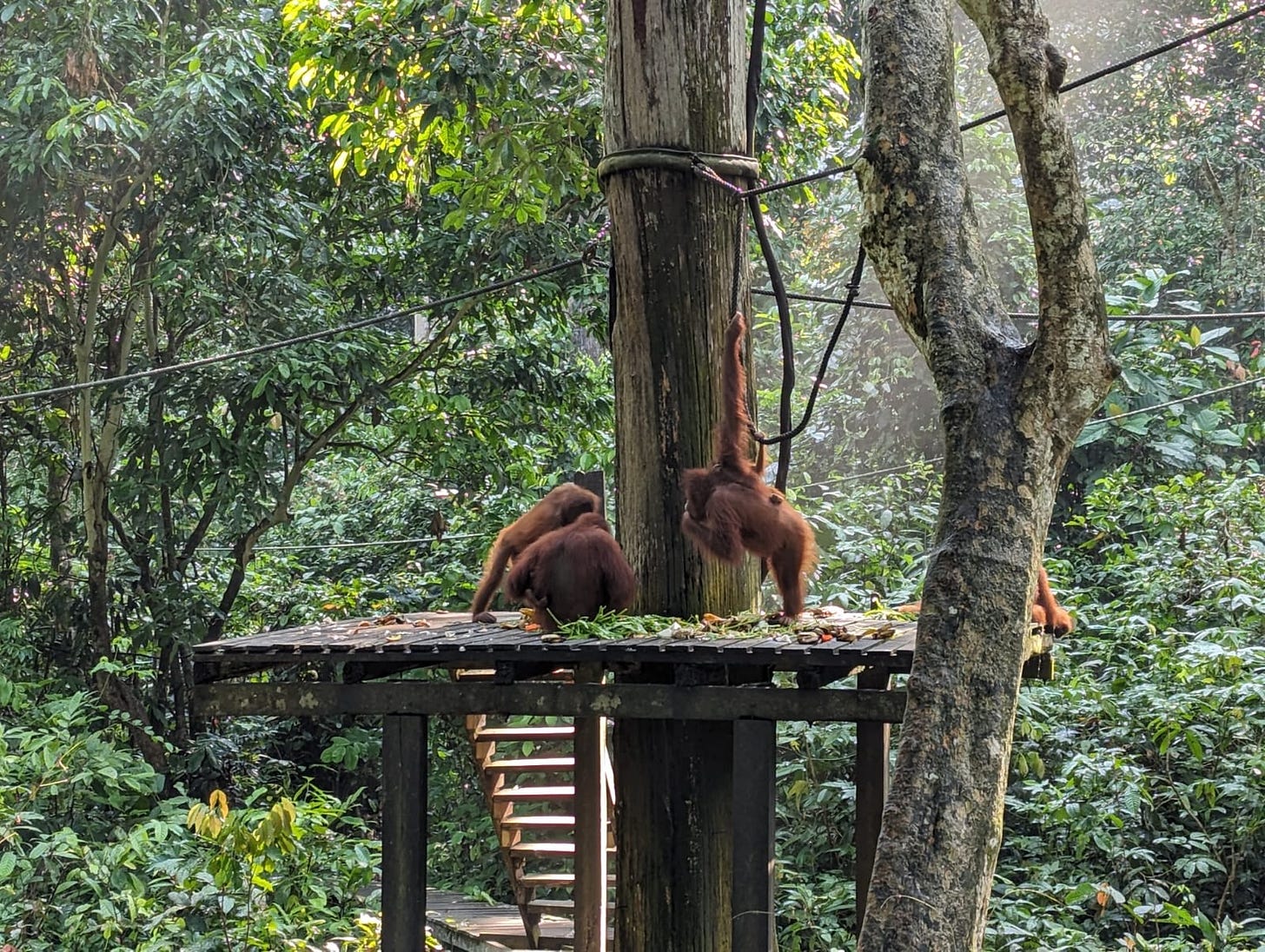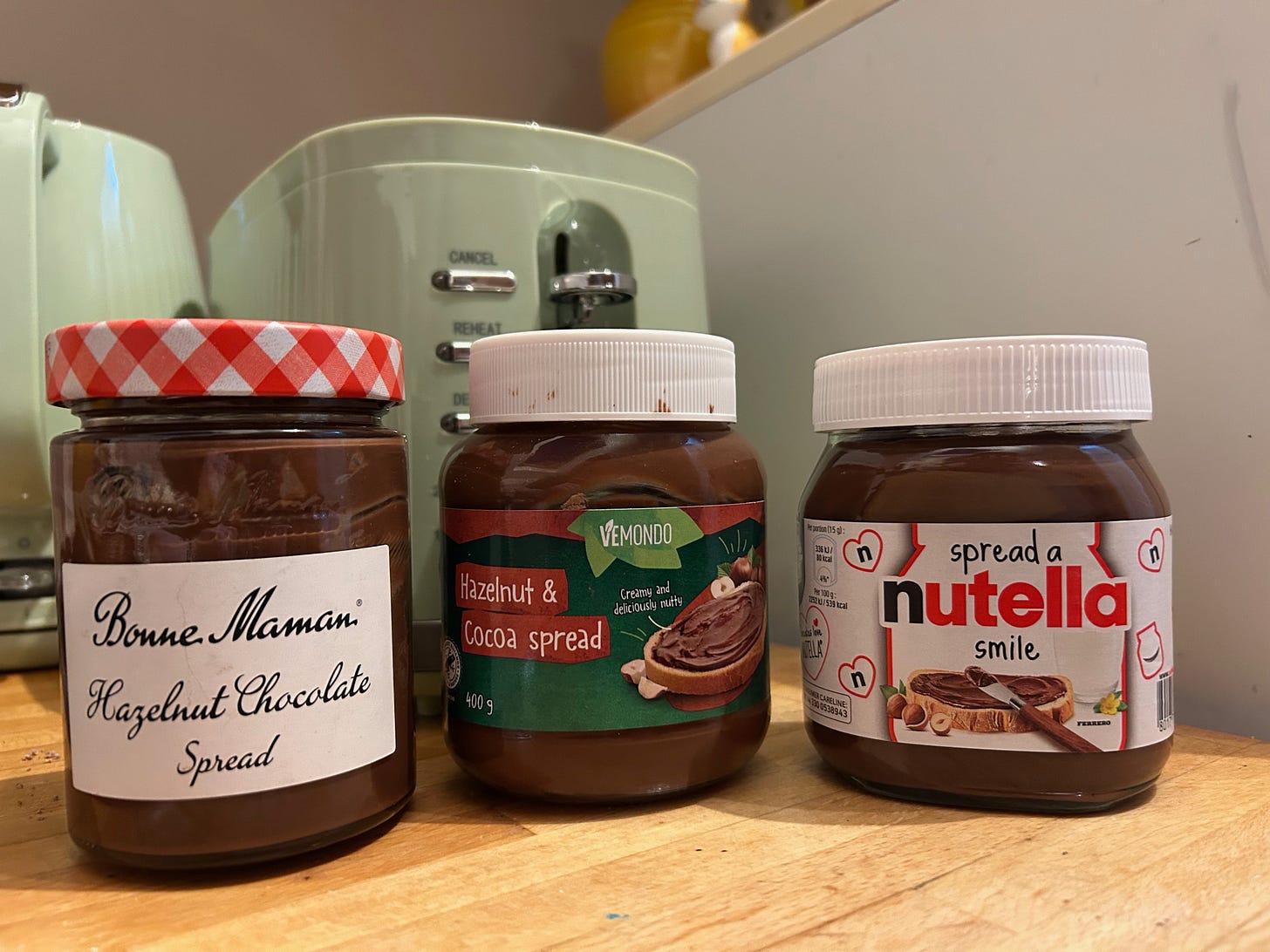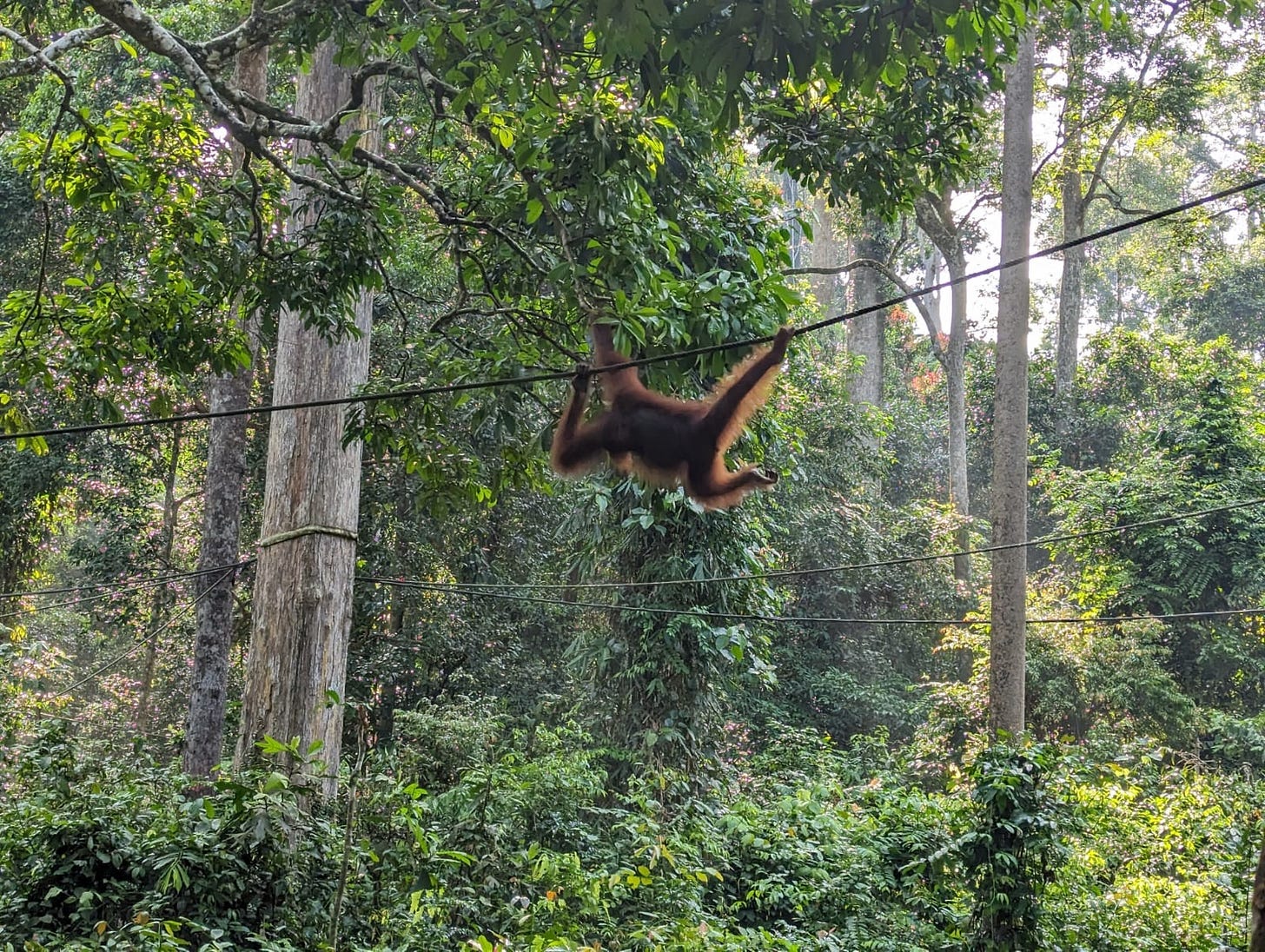Saving the orangutans, one slice of toast at a time?
Palm oil products like chocolate spread often take the blame for declining orangutan numbers, but can cutting this out really make a difference?
Orangutan numbers are rapidly declining, rainforests are being stripped away in favour of palm oil plantations, and conservationists are trying to figure out how to help.
Currently, there's an estimated population of roughly 61,000 orangutans of all three subspecies. This has fallen from an estimated population of 104,700 bornean orangutans in 2004 and 288,500 in 1973. This could fall to as few as 47,000 by the end of 2025, according to the IUCN.
But why are these great apes struggling to survive? Some blame palm oil and try to boycott products containing it, including various chocolate spreads, but can cutting out your favourite toast topping make a difference?
Another factor is deforestation throughout Asia but particularly in Indonesia and Malaysia, however much of this is for palm oil or tea plantations, which would be almost impossible to ban.
Is palm oil the enemy?
Whether palm oil is the issue has been up for debate for a while, however, there has recently been more of a focus on ensuring sustainable production processes.
Dr Susan Cheyne, Senior Lecturer in Biological Anthropology and Primate Conservation at Oxford Brookes University and Borneo Nature Foundation (BNF), stated that the “felling of forests for plantations of any type, such as palm oil, is going to have a huge impact. Certainly the position that I take is not to ban palm oil. That's simply not going to happen. It's such a huge component of the economy of Indonesia and Malaysia, and so many people depend upon it for their livelihoods. What we need to have is deforestation free palm oil.”
Also, there is an argument that palm oil, if produced sustainably, is better than other plant oils, as it has a yield per hectare of two to eight times more than any alternative vegetable oil, according to conservation group The Sustainable Palm Oil Choice.
It is also important that although sustainable palm oil can be a great resource, many products do not need to include it. Dr Cheyne reminisced on her Scottish heritage noting that “it's starting to be used in products it just doesn't need to be in. My ancestors would never have made oat cakes with palm oil, for crying out loud.”
Is conservation working?
How to best protect the environment and endangered species is ever changing.
Dr Cheyne noted that conservationists have realised recently that “A single species approach to conservation isn't particularly effective. You need to look at the whole system, the whole landscape, and if you're looking at that, then you also have to include the humans that live around it, and may use it as well.”
For those of us who don’t have a background in conservation, this essentially means that focusing on one species won’t be enough to save it, instead we have to think about the planet and specific ecosystems as just that – systems. We need to consider people living near them and how they interact, and the species living within it.
Another issue facing conservation is “the lack of government support. I think the government is happy to rely on charities and NGOs to do the work, which takes away the responsibility. But NGOs simply cannot command the level of money that the governments do,” says Dr Cheyne, considering how the field could improve.
In terms of charity conservation work, Adrienne Powell, charity manager at Orangutan Appeal UK, noted that “Through [the charity’s] efforts rescuing orphaned, injured, and displaced orangutans, providing care and rehabilitation, and supporting the protection and restoration of the rainforest, [they] are helping to preserve the remaining populations of wild orangutans.”
What can we do?
So what can we do, as individuals, to help protect the rainforests and orangutans?
Dr Cheyne noted the importance of working together: “Every waterfall starts with a single drop of water, but look at the power of a waterfall combined. I alone can't do anything, but if I work with a lot of people and get the message out there, all of us together, we have the power of a waterfall.”
“There’s action in numbers, but at the same time, each individual person has to take responsibility in their own home, for the reason their own home for the recycling, etc.”
In terms of direct action we can take, being conscious of energy use, recycling, using reusable bottles and coffee cups, avoiding single-use plastic, considering the sustainability of products we buy, are all hugely important.
Marco Tognazzi, a student, stated that he tries to minimise his environmental impact, through being “conscious of consumerism” and “using reusable products instead of plastic.” He also noted the greater impact that governments can have.
Similarly, Tamia Makwaza, also a student, explained that she “came from a background where recycling is non-existent, so when I moved here I started paying more attention to recycling, so instead of putting everything to waste I made that conscious decision to start separating things.”
Josh Staien, a barista, considered the benefits of walking rather than driving or catching public transport, although he also considered the impact a government could have if it brought in new schemes or taxes to increase sustainability.
Finally, Madison Henry, another student, noted the benefits of vegetarianism and the impact of meat production on the environment, she felt that although she avoids single-use plastics, she “could probably do more.”
The Orangutan Appeal UK encourages donations for people looking to make a difference to orangutan populations, however there are options for those of us looking to make lifestyle changes rather than helping financially. It’s becoming increasingly easy to check for products using palm oil and sustainable palm oil usage, with apps available to check ingredients with a quick barcode scan.
Dr Cheyne summed up that “a lot of the problem is that people are uncertain what action to take. I do believe that everyone can be a conservationist in their own small way. I know a lot of the time when people look at conservation, it’s all doom and gloom, but there is progress as well. It’s just not happening as fast as it needs to.”





